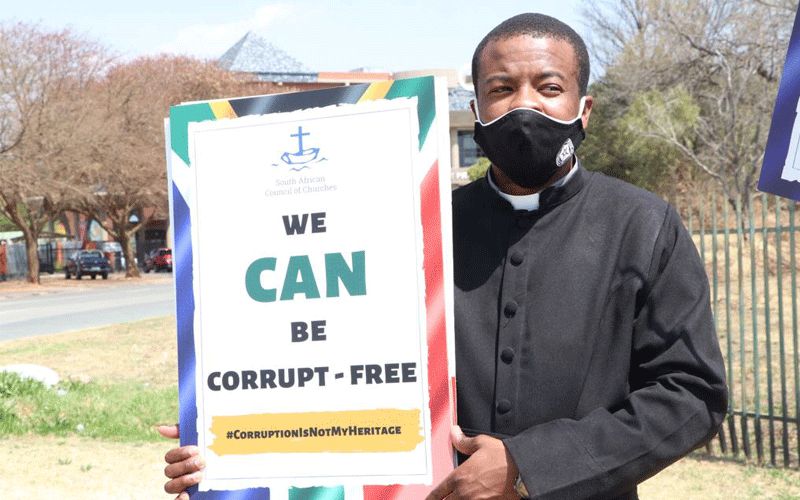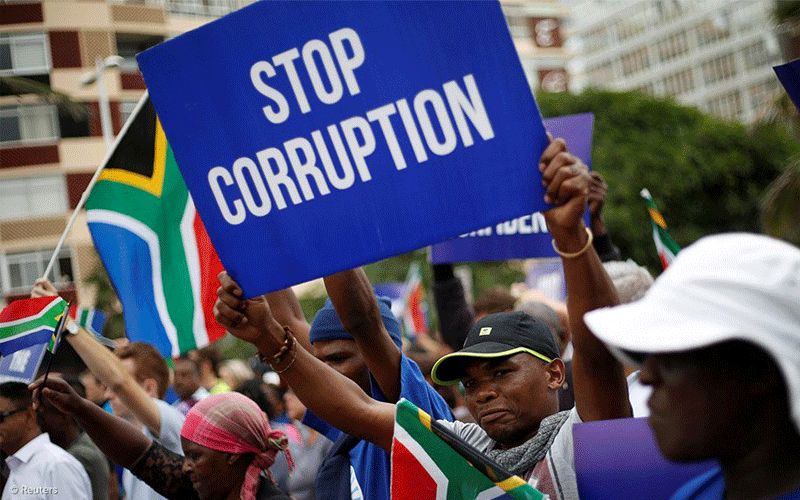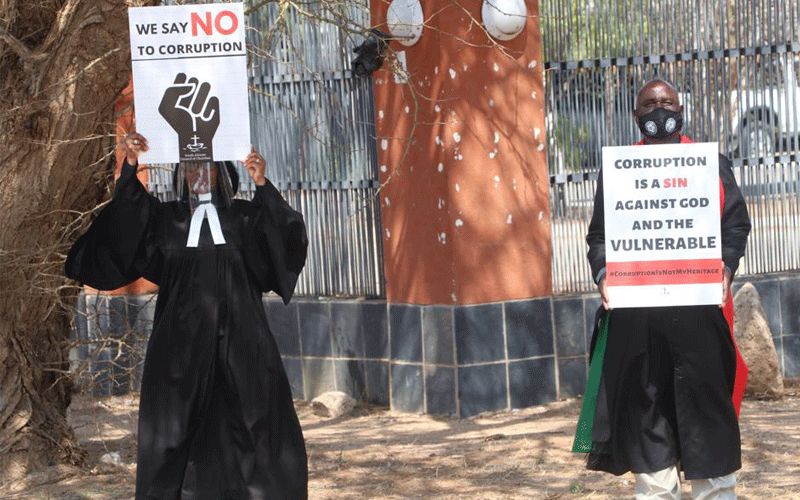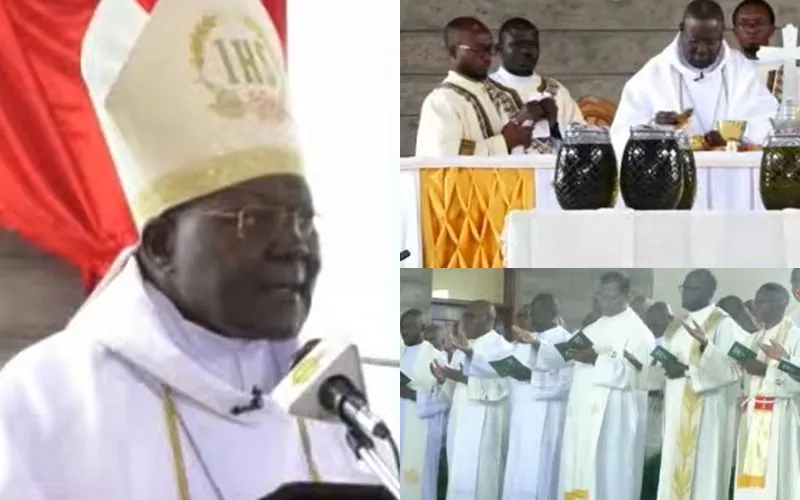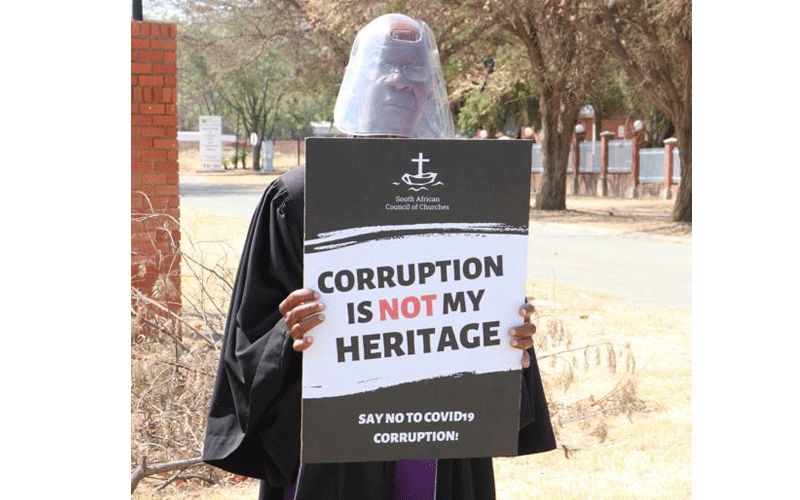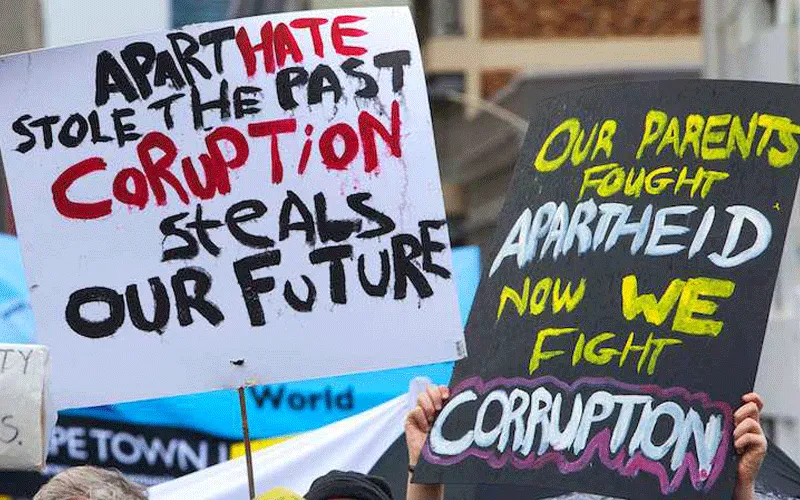
“As the saying that ‘when you point a finger, there are three fingers pointing back to you’ reminds us however, it is only realistic and honest to examine what these three fingers are pointing to us as Church in relation to corruption,” he says.
He further poses, “In clear conscience can we say that we as Church are free of what we are condemning in others?”
In his considered view, the opportunity to dutifully point out corruption in government and business is also an opportunity for the Church leadership “to introspect about attitudes and practices in her life and work that smack of corruption.”
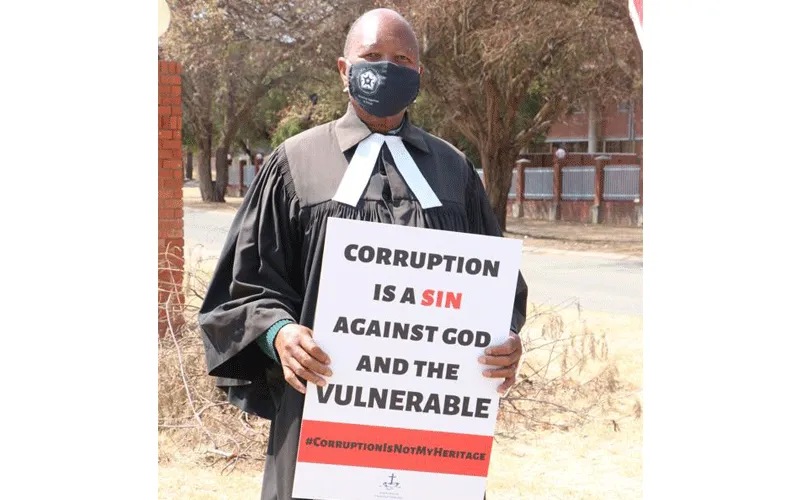
(Story continues below)
“As the Church seeks to remove the splinter of corruption in government, business and society, she also needs to reckon with the possible log in her own eye that would make it hypocritical to point out the splinter in others as the good Lord humorously put it.”
According to the South African Bishop who has been vocal against corruption in his country, the Church worldwide is seen as a moral authority and hence, when she is also corrupt, her role as light house of goodness is discredited and the hope of people on the role of the Church “to overcome the cancer of corruption is destroyed.”
He says that corruption within the Church takes different forms including misappropriation of funds, sexual abuse, and lack of work ethic.

The Bishop explains that misappropriation of Church funds is facilitated by lack of proper management of resources, which leads to individuals benefiting from funds that were not meant for their benefit.
In his reflection, he makes a distinction between “ignorant misappropriation” and “fraudulent misappropriation.”
Ignorant misappropriation of Church funds, Bishop Sipuka says, mostly happens with the innocence of filling in for a “need that suddenly presented itself” with the money that was not meant for it.

This type of misappropriation of funds, the SACBC President says, is often accompanied by lack of recording.
“When the time comes for accounting for the money, the person does not know what he has done with the money,” he says, and adds, “Lack of accounting mechanisms like reports and financial quarterly returns also feed this type of misappropriation of funds.”
As a way forward, those in charge of Church funds need to learn and practice financial management and stick to the rules of accounting, Bishop Sipuka says in his new month reflection.
Fraudulent misappropriation, on the other hand, happens out of sheer greed for money, where a person knowingly diverts funds meant for something else, most of the time for himself or herself, for his family or for friends, he explains.

“The remedy for this form of misappropriation is to fire the person and have him, or her charged,” the 60-year-old Prelate recommends.
Punishment for corrupt individuals should be equal, whether they are in Church, government or in business, the Local Ordinary of South Africa’s Umtata Diocese says, adding that Priests and Religious who “push corruption” should never be allowed to get away with it.
“Any suggestion for a different treatment would be nothing less than clericalism which unconsciously promotes use of clerical status or power for selfish reasons and getting away with it,” Bishop Sipuka says.
He underscores, “Corruption is the same regardless of who pushes it and logically the consequences must be the same.”
Agnes Aineah is a Kenyan journalist with a background in digital and newspaper reporting. She holds a Master of Arts in Digital Journalism from the Aga Khan University, Graduate School of Media and Communications and a Bachelor's Degree in Linguistics, Media and Communications from Kenya's Moi University. Agnes currently serves as a journalist for ACI Africa.
